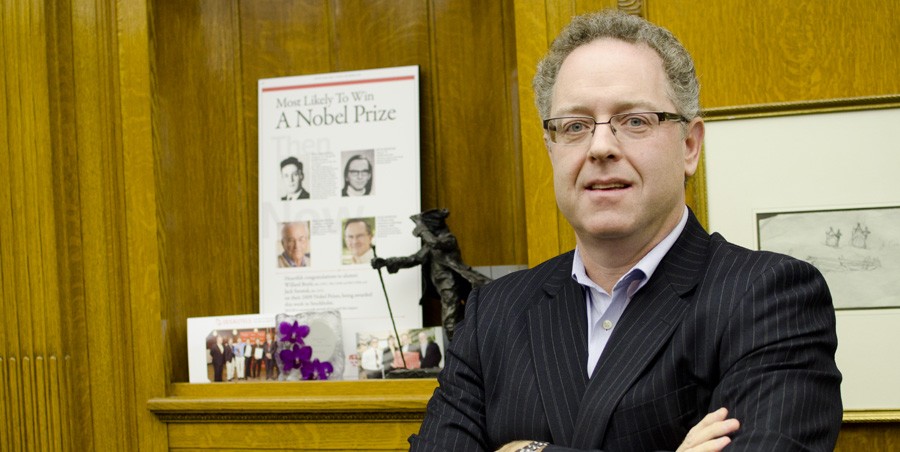Last Thursday, reporters from campus media met with Marc Weinstein, McGill’s Vice President (Development and Alumni Relations) and Derek Cassoff, Director of Communications (Development and Alumni Relations), to discuss McGill’s History in the Making campaign—the largest fundraising campaign in the university’s history. Launched publicly in 2007, the campaign has raised over $700 million for the university to date. According to Weinstein, roughly 65 per cent of this money comes from individuals, 20 per cent from family foundations, and 14 per cent from corporations.
Le Délit: How do you make the distinctions between [individuals] who are high paid executives of a certain company, versus a corporation?
Marc Weinstein: At the end of the day, it’s who writes the cheque … [for example] if an individual is sitting on a board, and he or she has that responsibility … but at the end of the day, if the cheque comes from the individual personally, it’s not a corporate gift. It’s an individual gift.
McGill Tribune: As far as the statistics for individual donors and corporate donors go, how does McGill compare to other universities in Canada or North America?
MW: McGill is extremely strong on raising philanthropic dollars from individuals compared to some of our sister universities across Canada, and especially in Quebec. Quebec’s mindset is a different sort of mindset when it comes to philanthropy—it’s highly corporate. We’re very strong on the individual … [but] our alumni pool is extremely diversified, and … 55 per cent of [our] alumni pool live in Quebec and 45 per cent of them live everywhere else … So it’s more challenging for us to keep them engaged, keep them interested, and keep them connected and value their education.
Derek Cassoff: In any typical year, 22-30 per cent of our alumni make a gift, whatever the size, so … our alumni tend to be much more likely to make a gift back to the university on an annual basis versus most of our counterparts in Canada. That allows us to have such a robust alumni donor base so we’re not as reliant on corporations to help us meet our philanthropic objectives.
McGill Daily: You said $230 million raised has been earmarked for student support. How much of that has been spent, and what does that translate to exactly?
MW: Your question’s a tough one because some of the dollars we’ve raised are endowed dollars, that every year will spin off interest … and then we’ll create the scholarships, or we’ll marry some of that money with other money we have, and we’ll provide it in more robust scholarships. … [Then] there are other donors who don’t want to do endowments—they want to do what we call ‘direct spent’ … Someone who doesn’t have $100,000 but still wants to help students, well we will tell him or her that [they] can give us a three year commitment for $5,000 and then in three years we’ll revisit … it’s a 50/50 split to be honest, but that money is being very well utilized.
MT: Are there any disadvantages to [McGill’s] donor-centric system?
MW: I think a very good, mature organization will want to be donor-centric because if you’re not donor-centric, [philanthropy] becomes all about just a transaction … It’s about building relationships, and then people will be very accommodating … and want to do it out of their own good will … So I think we need to be donor-centric, otherwise we won’t achieve where we want to go. Donor centricity starts off with listening to what the donor might or might not want to do, trying to make the connection with the priorities of the university, finding ways to somehow make sure that those parts fit nicely together, and then—beyond just accepting the ultimate so-called proverbial cheque— it’s what do we do after all that.
LD: I guess a lot of your job relies on the confidence of the donors. How did McGill Leaks affect the confidence of the donors in that respect?
DC: I think we did a pretty good job … of getting information out to our donor community right away. As soon as we heard about it we got information out to our donors, we followed up more specifically with any donors whose files may have been affected … I don’t think we lost a single penny of donations because of that—if anything we had a real appreciation from our donor alumni communities that we were so upfront with the information, and didn’t hold anything back.
—This interview has been condensed and edited by Erica Friesen.









